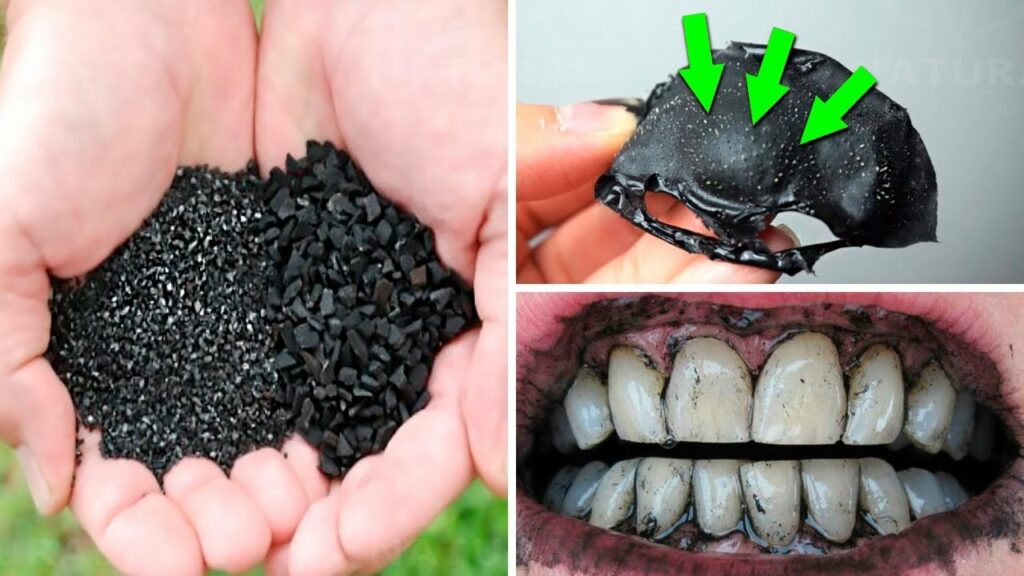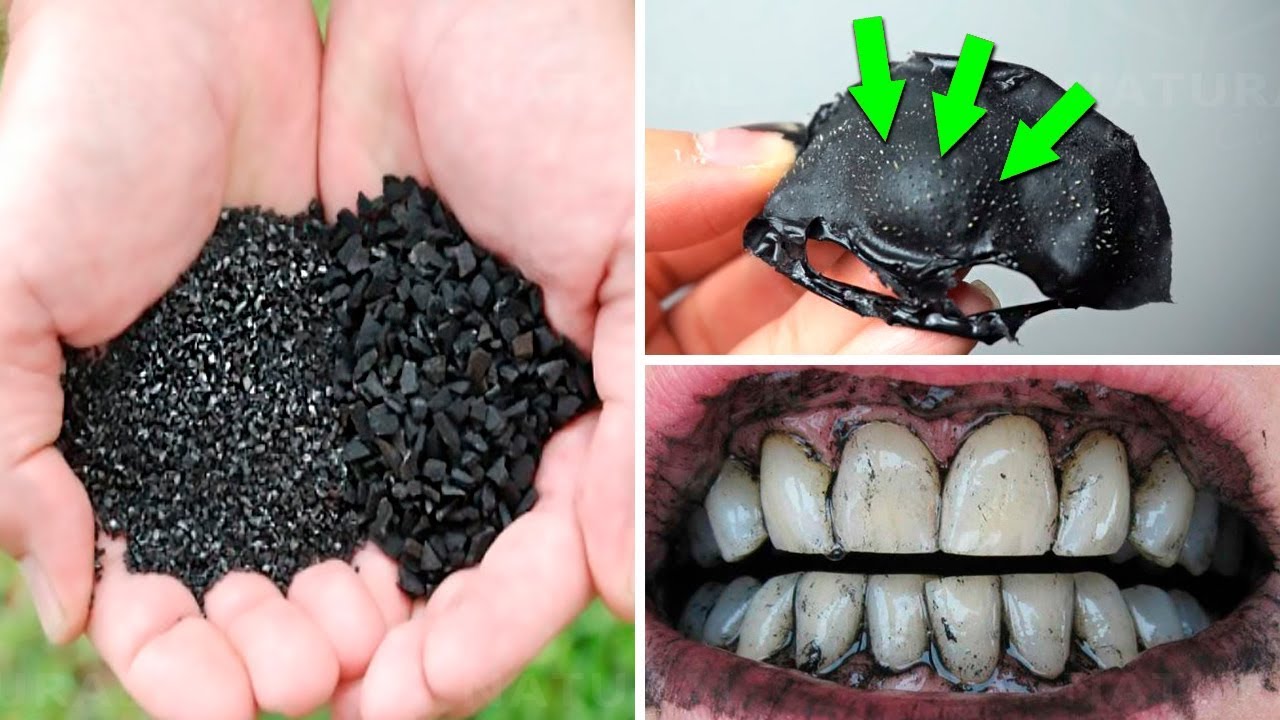
Activated charcoal has become a popular natural remedy, known for its ability to detoxify the body, whiten teeth, and even alleviate digestive issues. Derived from materials like coconut shells or wood, activated charcoal is treated with heat to increase its surface area, making it highly porous and effective at trapping toxins. Here’s what activated charcoal actually does to your body and why it’s gaining so much attention.
1. Teeth Whitening
One of the most well-known uses of activated charcoal is for whitening teeth. Many people use it as a natural alternative to commercial teeth-whitening products.
How It Works:
-
Activated charcoal binds to substances that stain the teeth, such as tannins from coffee, wine, and tea, as well as plaque. It works by absorbing these particles, lifting them away from the surface of the teeth.
-
It is mildly abrasive, helping to scrub away surface stains without the use of harsh chemicals.
How to Use It:
-
Wet your toothbrush and dip it into powdered activated charcoal.
-
Brush your teeth gently for 2 minutes.
-
Rinse thoroughly with water, ensuring you remove all the charcoal residue.
-
Use 2-3 times a week to prevent excessive abrasion of the enamel.
Caution: While activated charcoal can help whiten teeth, overuse may erode tooth enamel due to its abrasive nature. It’s best to use it sparingly and consult a dentist if you have concerns.
2. Detoxifies the Body
Activated charcoal is highly absorbent and can trap toxins and chemicals in its pores, preventing them from being absorbed into the body. This makes it useful for detoxification in certain situations.
How It Works:
-
When ingested, activated charcoal can bind to toxins in the stomach and intestines, which are then passed through the digestive system and excreted. This property makes it a common remedy for poisoning or drug overdoses, and it’s frequently used in emergency medical situations.
-
Activated charcoal also binds to certain harmful substances like heavy metals, chemicals, and pesticides, helping to flush them out of the body.
Caution: Activated charcoal should only be used for detoxification under medical supervision, particularly in cases of poisoning. It may interfere with the absorption of medications or essential nutrients if taken excessively or without proper guidance.
3. Relieves Gas and Bloating
Activated charcoal is commonly used to alleviate digestive discomfort, including gas and bloating.
How It Works:
-
Activated charcoal can bind to gas-producing compounds in the digestive tract, helping to reduce gas buildup and relieve bloating.
-
It also helps absorb toxins and waste products that may contribute to digestive issues, creating a more comfortable environment in the gut.
How to Use It:
-
Activated charcoal is available in capsules, tablets, or powder form. Follow the instructions on the packaging, but it’s typically recommended to take it with water after meals if you experience bloating or gas.
-
Drink plenty of water when taking activated charcoal to help flush it through your system and avoid constipation.
4. Helps with Poisoning and Overdose
Activated charcoal is widely used in emergency rooms to treat poisoning and drug overdoses. Its ability to bind to toxins makes it an effective treatment in these cases.
How It Works:
-
Activated charcoal binds to toxins and drugs in the stomach and intestines, preventing their absorption into the bloodstream. This is why it’s often used in cases of accidental poisoning or overdose, especially with substances like alcohol, aspirin, or certain medications.
-
It is most effective if taken within an hour of the ingestion of the toxic substance.
Important: Activated charcoal should not be used at home for serious poisoning or overdose without medical supervision. Seek emergency care immediately in such situations.
5. Supports Kidney Function
Activated charcoal may help support kidney function by reducing the levels of waste products that the kidneys typically filter out, particularly in people with chronic kidney disease.
How It Works:
-
Activated charcoal binds to urea and other toxins, helping to reduce the load on the kidneys and prevent the buildup of waste products in the bloodstream.
-
This is especially beneficial for people with compromised kidney function, as it can help reduce the levels of toxins in the body.
Caution: Always consult a healthcare provider before using activated charcoal to support kidney health, especially if you have pre-existing conditions.
6. Clears Skin and Treats Acne
Activated charcoal is becoming a popular ingredient in skincare products, thanks to its ability to absorb impurities, oils, and toxins from the skin.
How It Works:
-
The porous structure of activated charcoal helps draw out dirt, oil, and toxins from clogged pores, making it a popular remedy for treating acne and oily skin.
-
Activated charcoal masks and cleansers can help detoxify the skin, leaving it feeling fresh and clean.
How to Use It:
-
Apply activated charcoal masks 1-2 times per week to draw out impurities from the skin.
-
For spot treatments, mix a small amount of activated charcoal powder with water to create a paste, and apply it directly to acne-prone areas.
Caution: People with sensitive or dry skin should use activated charcoal sparingly, as it can be drying when used excessively.
7. Water Filtration
One of the original uses of activated charcoal was in water filtration systems. It is highly effective at trapping impurities, toxins, and chemicals from water.
How It Works:
-
Activated charcoal filters are commonly used in water purification systems to remove chlorine, volatile organic compounds (VOCs), and other impurities from tap water.
-
It helps improve the taste and quality of drinking water by absorbing harmful substances.
Precautions When Using Activated Charcoal
-
Interferes with Medication Absorption: Activated charcoal may reduce the effectiveness of certain medications, including antibiotics and birth control pills. Always consult your doctor if you’re taking medications before using activated charcoal.
-
Dehydration: Activated charcoal may lead to dehydration, so it’s important to drink plenty of water when using it, especially for internal detox purposes.
-
Constipation: Ingesting large amounts of activated charcoal can cause constipation, so always follow dosage instructions carefully.
Conclusion
Activated charcoal offers numerous health benefits, from whitening teeth to detoxifying the body and improving skin health. Its natural ability to absorb toxins and impurities makes it a powerful tool for various applications. However, while activated charcoal can be beneficial, it’s important to use it with caution, especially when ingested, as it can interfere with medications and essential nutrients. Always consult with a healthcare provider when using activated charcoal for medical purposes.




